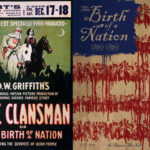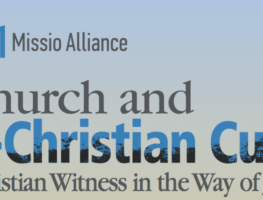A few weeks ago a friend of mine was diagnosed with glioblastoma. It’s a rare form of brain cancer, unforgiving and aggressive. They removed a baseball-sized tumor from his head. The last few weeks of life have been spent juggling babysitters, house cleanings, raising funds and coordinating meals in an attempt to care for this family well. During this time, I was invited to screen Collateral Beauty. You can imagine how stunned I was when the words “glioblastoma” framed the story of Howard, the lead character. How can that be? What are the odds that this film would choose that type of cancer, especially right now?
Love.
Time.
Death.
Collateral Beauty is one part memoir and two parts tale. Its narrative is reminiscent of the classic, “A Christmas Carol”, with the visiting of three spirits to awaken a deadened soul. Viewers are brought back to the themes of Love, Time and Death through the supporting characters and the whimsical visitations Howard encounters.
Howard is introduced as a strong business entrepreneur with a charismatic flair, deeply caring for his employees and friends. Suddenly the film shifts and Howard is despondent. He’s lost his child. We enter into his story as his friends try to coerce him from grief.
As Howard’s three friends try and make meaning of his pain, I was reminded of Job in the Bible and his three friends, who rushed his grief, offering empty words, always coming up short (Job 8:2). His friends are manipulative and coy about their intentions to move their friend along in his bereavement. Likewise, the film’s grasp of the hardest realities of this life—loss—came up empty.
“Why is there suffering in the world?” “Where is God in the midst of suffering?” Aren’t these some of the biggest questions we ask? From the trailer and premise, Collateral Beauty had an alluring potential—showing what it means to grapple the ominous realities of loss and sorrow. In 2016, these have been very present realities.
Rather than teaching us about Love, Time and Death, this movie exposes a different truth: our discomfort with feeling unresolved. Howard’s friends reveal our natural desire to rush along hurt and disappointment, especially when it’s unexplainable. Collateral Beauty attempts to make meaning of heaviness by insisting there is residual “beauty” in all things. The film seemed eager to resolve pain and anguish with a cheery holiday message. This cheapens the sacredness of mystery.
I left the film thinking of my friends. Our pain isn’t so easily resolved from visits of whimsical spirits. Instead, it will consist of long days of entering into the darkness and reality of cancer. It will mean delivered meals, hours of babysitting, trips to the doctor. It will be filled with moments that are precariously balanced by sadness and laughter. It will be lingering moments of unknown and ‘what ifs’. I left asking, what hope do we have instead? How do we suffer in a different way? Fortunately, faith provides alternative narratives to love, time and death. Collateral Beauty seemed eager to resolve pain w/ a holiday message, cheapening the sacredness. Click To Tweet
Faith Reveals the Presence of Love in Suffering
A distinction of Christianity is that love is characterized in suffering. We see a Savior who embraced suffering as a way to overcome evil. This paradox gives us the groundwork for a response to suffering. We need not minimize it but are able to embrace suffering knowing its work is productive and gives way to compassion.
In his book Compassion, Henri Nouwen shares its relationship to suffering:
“Jesus’ whole life and mission involve accepting powerlessness and revealing in this powerlessness the limitlessness of God’s love. Here we see what compassion means. It is not a bending toward the underprivileged from a privileged position; it is not a reaching out from on high to those who are less fortunate below; it is not a gesture of sympathy or pity for those who fail to make it in the upward pull. On the contrary, compassion means going directly to those people and places where suffering is most acute and building a home there.”
Jesus is at home in our suffering. As Christians, our love is characterized by this relationship of compassion and suffering. We suffer so we know how to be present to a hurting world. Through the work of faith, love moves from an elusive idea that we are chasing, to a presence that is with us in our hurt and powerlessness. Our presence becomes an embodying love that has space for the suffering of those around us. Jesus is at home in our suffering. Click To Tweet
Faith Provides an Alternative View of Time
In Collateral Beauty, time is view as fleeting, and something we are all trying to manipulate. This scarcity of time showed up in their response to his grief. Howard’s friends were not able to be present to his pain instead, they plotted ways to rush it along. How tempting is it to minimize hurt with promises of better days and brighter sides of things?
But through Christ we see suffering as an opportunity to enter in. Suffering reconstructs the tension of time. Compassion allows us to lament with our brothers and sisters. As our understanding of suffering transforms, it changes our capacity to be with one another.
Faith offers space to approach the darkness of loss in a hopeful way. Rather than needing to immediately ‘fix’ or ‘solve’ suffering we are invited into longer view of time and pain. Ruth Haley Barton’s words on journeying through wilderness apply well to suffering:
“[Suffering] is frightening, because we are not sure such an approach will really work. And we are not sure what we might lose in the process…. To give ourselves to the process, we must trust that our truest self is hidden with Christ in God, to be revealed as God sees that we are ready to live into it”
When we make time for the mystery of grief we find a piece of who God is. We’re not promised that things will resolve neatly. We aren’t even told we will have answers via self-soothing of ‘understanding’. We lose control and face the reality we are finite beings. In this process of losing and finding ourselves, faith offers transformation of our suffering. This transformation points us to the “not yet” of our faith. Our view of time points us to our hope of a future glory. When we make time for the mystery of grief we find a piece of who God is. Click To Tweet
Faith Gives Us Hope In the Face of Death
Collateral Beauty centers of the fear of death and tries to give meaning to our limited life. Is this all there is? Faith gives us the ability to make meaning of life knowing this is not the end.
It’s been a weird thing to think about what it means to interact with someone who’s been told they’re dying. There’s a normalcy to life as we learn these new rhythms of doctors appointments and delivered meals and a sadness that undergirds it all. But there’s also a deeper hope in this suffering we are entering into together.
Part of the hope we have in celebrating comes from the knowing that our lives extend beyond ourselves. Love points us to a God who is working through suffering to show his glory both now, and in the future. This journey of cancer is not meaningless. The mystery of darkness is that the presence of God can still be found. Hope tells us that Death does not get the final word.
From darkness God creates, He forms meaning from chaos, he creates life in our death. This is the sharing of suffering to which Christ calls: a goodness that is not inhibited or mitigated by hard things but produces a fullness of joy that comes from embracing and naming our pain.
I don’t have to wish for the collateral beauty of Josh’s life. I know it’s already there, being lived out through his faith and will continue on however this journey resolves itself. Because of our faith, we will lament, we will weep, and yes we will even rejoice in the midst of this suffering. We have a deeper hope because this is not the end.
1- Barton, R. H. (2012). pp. 53 Strengthening the Soul of Your Leadership: Seeking God in the Crucible of Ministry. InterVarsity Press.
2- McNeill, D. P., Morrison, D. A., & Nouwen, H. J. (2006). Compassion: A reflection on the Christian life. Image.










Missio Alliance Comment Policy
The Missio Alliance Writing Collectives exist as a ministry of writing to resource theological practitioners for mission. From our Leading Voices to our regular Writing Team and those invited to publish with us as Community Voices, we are creating a space for thoughtful engagement of critical issues and questions facing the North American Church in God’s mission. This sort of thoughtful engagement is something that we seek to engender not only in our publishing, but in conversations that unfold as a result in the comment section of our articles.
Unfortunately, because of the relational distance introduced by online communication, “thoughtful engagement” and “comment sections” seldom go hand in hand. At the same time, censorship of comments by those who disagree with points made by authors, whose anger or limited perspective taints their words, or who simply feel the need to express their own opinion on a topic without any meaningful engagement with the article or comment in question can mask an important window into the true state of Christian discourse. As such, Missio Alliance sets forth the following suggestions for those who wish to engage in conversation around our writing:
1. Seek to understand the author’s intent.
If you disagree with something the an author said, consider framing your response as, “I hear you as saying _________. Am I understanding you correctly? If so, here’s why I disagree. _____________.
2. Seek to make your own voice heard.
We deeply desire and value the voice and perspective of our readers. However you may react to an article we publish or a fellow commenter, we encourage you to set forth that reaction is the most constructive way possible. Use your voice and perspective to move conversation forward rather than shut it down.
3. Share your story.
One of our favorite tenants is that “an enemy is someone whose story we haven’t heard.” Very often disagreements and rants are the result of people talking past rather than to one another. Everyone’s perspective is intimately bound up with their own stories – their contexts and experiences. We encourage you to couch your comments in whatever aspect of your own story might help others understand where you are coming from.
In view of those suggestions for shaping conversation on our site and in an effort to curate a hospitable space of open conversation, Missio Alliance may delete comments and/or ban users who show no regard for constructive engagement, especially those whose comments are easily construed as trolling, threatening, or abusive.